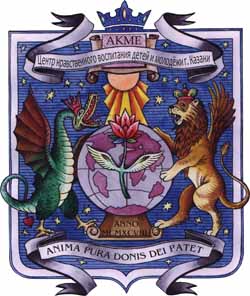
ACME
Association for Creative Moral Education
![]() Home
Home ![]() What is ZIPoPo
What is ZIPoPo ![]() Projects
Projects ![]() Trainings
Trainings ![]() Author and Founder
Author and Founder ![]() Gallery
Gallery ![]() Awards
Awards ![]() Publications
Publications ![]() Partners
Partners ![]() Contacts
Contacts
![]()
"Social issues, moral choices, and People's Theatre"
by David Khorram
Wednesday January 9, 2008
Friday, January 04, 2008

By David Khorram, MD
Special to the Saipan Tribune
Last week I had the
opportunity to attend a conference in Guam that examined a variety of social issues from a spiritual perspective. One of
the speakers was Shamil Fattakhov, a Russian filmmaker and journalist with
background in conflict resolution, who has founded an NGO that helps
communities examine their difficult social issues through an interesting format
using theatre.
In the 1990s he began to grapple with a variety of social issues on his TV talk
show through the use of skits. A topic would be selected, usually one that no
one talks about, or that is usually addressed very superficially. However, the
skit would not have an ending. It would be taken to the moment of highest
conflict, and then stopped. At that point, members of the studio audience would
be asked to first evaluate what had just happened, and then to suggest
solutions to the conflicts. Audience members would then be invited to
participate in completing the drama. "So, you think the father should do
this in this situation. Come on up here, and play the part of the father for
us," and the drama would continue, using the collective wisdom of the
audience.
The format, which has been adopted in many places in the world, is sometimes
referred to as "People’s Theatre." The skits tend to pick hot,
complex topics that people generally don’t talk about... things like a Albanian
daughter coming home to tell her parents she’s fallen in love and wants to get
married...to a Macedonian (this was performed just after the war in Macedonia).
What topics might be addressed in our community?
The goals of the theatre are six-fold:
- To establish the highest moral principle governing the topic.
- To clarify the essence of the problem or issue.
- To establish the necessity and possibility of its resolution.
- To seek to find practical positive ways of resolving the problem by means of
consultation.
- To share experiences, enrich each other’s knowledge and understanding on
moral issues, and to use the accumulated wisdom of humanity to do so.
- To inspire the audience and to encourage the participation to act in a
positive, moral way, to develop their own moral capacities.
I found the whole discussion fascinating. Mr. Fattakhov pointed out that so
often, particularly in dilemma facing youth, people take action based on the
feeling that "I had no choice" and that the process of the theatre
and the discussion helps people see that every situation presents choices.
Part of his work around the world involves training communities to develop
their own "People’s Theatre". The five-day training includes
instruction on the philosophy of the method, choosing topics, developing skits,
learning to act and direct, and to serve as a moderator or “host” to capture
the feedback of the audience. I've received some feedback from members of our
community that they would be interested in receiving this training and bringing
this sort of “People's Theatre” to Saipan. If
you are interested, send me an e-mail, or give me a call. We're exploring the
possibility of bringing Mr. Fattakhov to Saipan to provide the five-day training course.
In the meantime, feel free to send me your suggestions on topics that you would
like to see explored.
(David Khorram, MD is a board certified ophthalmologist and director of
Marianas Eye Institute. Comments and questions are welcome. Call 235-9090 or
email him through www.MarianasEye.com, or leave comments at
www.MarianasEye.blogspot.com. Copyright © 2008 David Khorram)
![]()